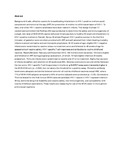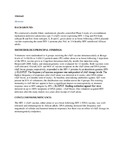PedVacc 002: A phase I/II randomized clinical trial of MVA.HIVA vaccine administered to infants born to human immunodeficiency virus type 1-positive mothers in Nairobi
| dc.contributor.author | Njuguna, Irene N | |
| dc.contributor.author | Ambler, Gwen | |
| dc.contributor.author | Reilly, Marie | |
| dc.contributor.author | Ondondo, Beatrice | |
| dc.contributor.author | Kanyugo, Mercy | |
| dc.contributor.author | Lohman-Payne, Barbara | |
| dc.contributor.author | Gichuhie, Christine | |
| dc.contributor.author | Borthwick, Nicola | |
| dc.contributor.author | Black, Antony | |
| dc.contributor.author | Mehedi, Shams-Rony | |
| dc.contributor.author | Sun, Jiyu | |
| dc.contributor.author | Maleche-Obimbo, Elizabeth | |
| dc.contributor.author | Chohan, Bhavna | |
| dc.contributor.author | John-Stewart, Grace C | |
| dc.contributor.author | Jaoko, Walter | |
| dc.contributor.author | Hanke, Tomáš | |
| dc.date.accessioned | 2014-10-28T07:52:08Z | |
| dc.date.available | 2014-10-28T07:52:08Z | |
| dc.date.issued | 2014-10 | |
| dc.identifier.citation | Volume 32, Issue 44, 7 October 2014, Pages 5801–5808 | en_US |
| dc.identifier.uri | http://hdl.handle.net/11295/74582 | |
| dc.identifier.uri | http://www.sciencedirect.com/science/article/pii/S0264410X14011578 | |
| dc.description.abstract | Background A safe, effective vaccine for breastfeeding infants born to HIV-1-positive mothers could complement antiretroviral therapy (ART) for prevention of mother-to-child transmission of HIV-1. To date, only a few HIV-1 vaccine candidates have been tested in infants. Trial design A phase I/II randomized controlled trial PedVacc 002 was conducted to determine the safety and immunogenicity of a single, low dose of MVA.HIVA vaccine delivered intramuscularly to healthy 20-week-old infants born to HIV-1-positive mothers in Nairobi, Kenya. Methods Pregnant HIV-1-positive women in the 2nd/3rd trimester of gestation were enrolled, provided with ART and self-selected their infant-feeding modality. Infants received nevirapine and cotrimoxazole prophylaxis. At 20 weeks of age, eligible HIV-1-negative infants were randomized to vaccine versus no-treatment arms and followed to 48 weeks of age for assessments of vaccine safety, HIV-1-specific T-cell responses and antibodies to routine childhood vaccines. Results Between February and November 2010, 182 mothers were screened, 104 were eligible and followed on ART during pregnancy/postpartum, of whom 73 had eligible infants at 20 weeks postpartum. Thirty-six infants were randomized to vaccine and 37 to no treatment. Eighty-four percent of infants breastfed, and retention at 48 weeks was 99%. Adverse events were rare and similar between the two arms. HIV-1-specific T-cell frequencies in interferon-γ ELISPOT assay were transiently higher in the MVA.HIVA arm (p = 0.002), but not above the threshold for a positive assay. Protective antibody levels were adequate and similar between arms for all routine childhood vaccines except HBV, where 71% of MVA.HIVA subjects compared to 92% of control subjects were protected (p = 0.05). Conclusions This trial tested for the first time an MVA-vectored candidate HIV-1 vaccine in HIV-1-exposed infants in Africa, demonstrating trial feasibility and vaccine safety, low immunogenicity, and compatibility with routine childhood vaccinations. These results are reassuring for use of the MVA vector in more potent prime-boost regimens. | en_US |
| dc.language.iso | en | en_US |
| dc.publisher | University of Nairobi | en_US |
| dc.subject | Modified vaccinia virus Ankara (MVA); Infant vaccine trial in Africa; Exposed-uninfected infants; HIV-1; Pediatric HIV-1 vaccines; KEPI vaccines; EPI vaccines | en_US |
| dc.title | PedVacc 002: A phase I/II randomized clinical trial of MVA.HIVA vaccine administered to infants born to human immunodeficiency virus type 1-positive mothers in Nairobi | en_US |
| dc.type | Article | en_US |
| dc.type.material | en | en_US |
Files in this item
This item appears in the following Collection(s)
-
Faculty of Health Sciences (FHS) [10378]



